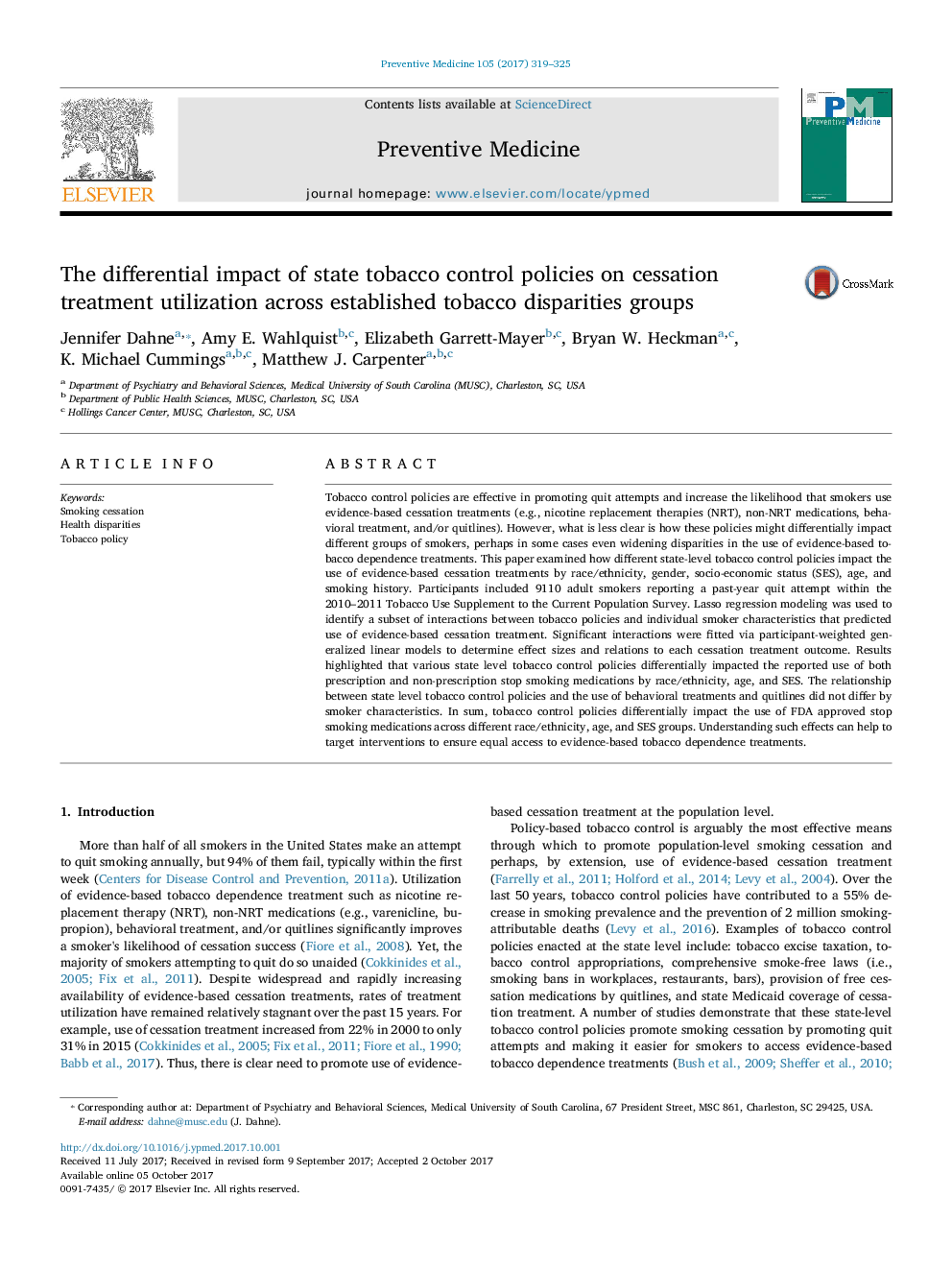ترجمه فارسی عنوان مقاله
تاثیر دیفرانسیل سیاست های کنترل دخانیات دولت بر استفاده از درمان توقف در سراسر گروه های اختلافات تنباکو
عنوان انگلیسی
The differential impact of state tobacco control policies on cessation treatment utilization across established tobacco disparities groups
| کد مقاله | سال انتشار | تعداد صفحات مقاله انگلیسی |
|---|---|---|
| 149210 | 2017 | 7 صفحه PDF |
منبع

Publisher : Elsevier - Science Direct (الزویر - ساینس دایرکت)
Journal : Preventive Medicine, Volume 105, December 2017, Pages 319-325
ترجمه کلمات کلیدی
ترک سیگار، تفاوت های بهداشتی، سیاست دخانیات،
کلمات کلیدی انگلیسی
Smoking cessation; Health disparities; Tobacco policy;

